I Ran To A Mexican Village Seeking Self Actualization; I Found Something Better
A short run, but one we will never forget
A breakup actually led me to the Mexican border village of Boquillas.
I learned about the place while reading about Conor Knighton, a young journalist who hiked every National Park in America (all in one year) after his fiancée dumped him.
Naturally, my mom recommended his book Leave Only Footprints, hoping it would help heal my own heartache. His chapter about Big Bend and this lonely village across the Rio Grande leapt out of the pages and grabbed me by the collar.
Why?
At the time, Boquillas felt like an escape—a magical oasis far from everything and anyone I knew. A place where I could learn something about myself and maybe get over this girl. As if a sage sat across the Rio Grande waiting to hear all my problems.
When I visited this year, I learned I was wrong about Boquillas and misguided about my reasons for visiting.
A Journey Through Deserts and Borders
In February, a few friends and I drove from Austin to Big Bend for a trail run—a 17-mile trek up the Chisos Mountains.
Boquillas was our post-run celebration.
The road to Big Bend takes you through the rugged forests of Texas hill country and the big sky of the Texas plains. You can see where Big Bend gets its name if you open Google Maps. The park makes up the “bend” in southwest Texas formed by the Rio Grande twisting its way through the Chihuahuan desert. The Rio Grande is the natural border between the United States and Mexico. Tucked between a canyon and a sharp meander in the river on the park's southeast side sits the village of Boquillas.
We completed the run on Saturday, took some time to recover, and woke up early the following day to make our way into Mexico.

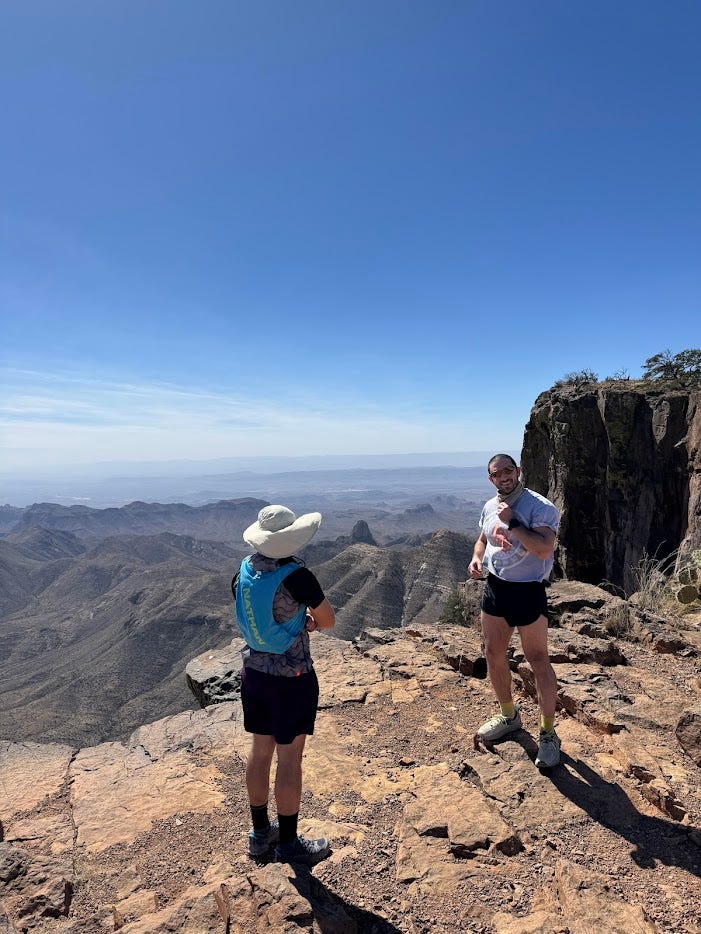
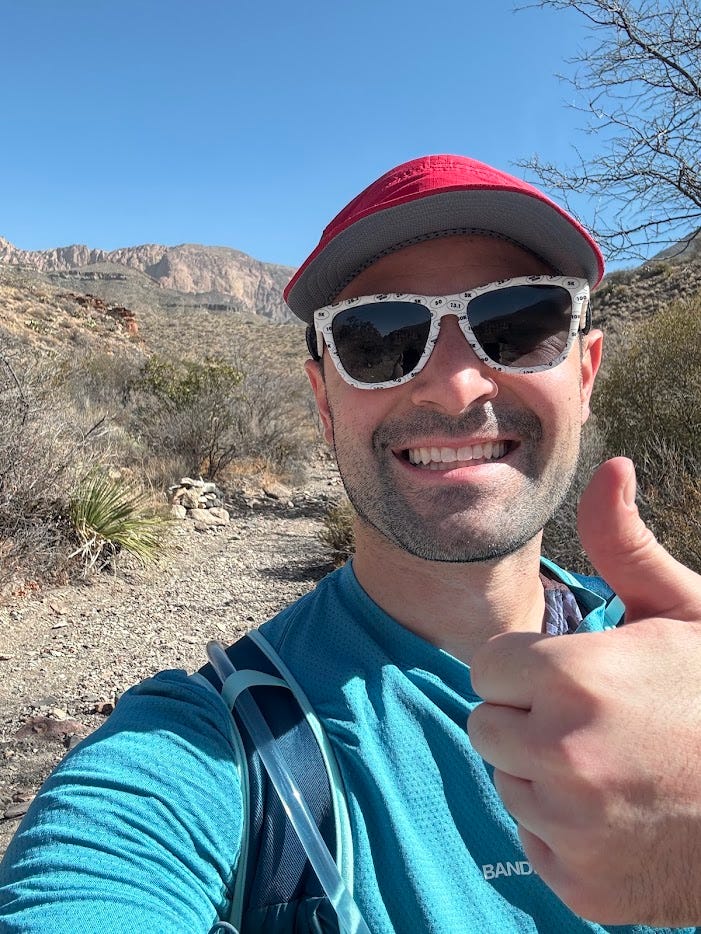
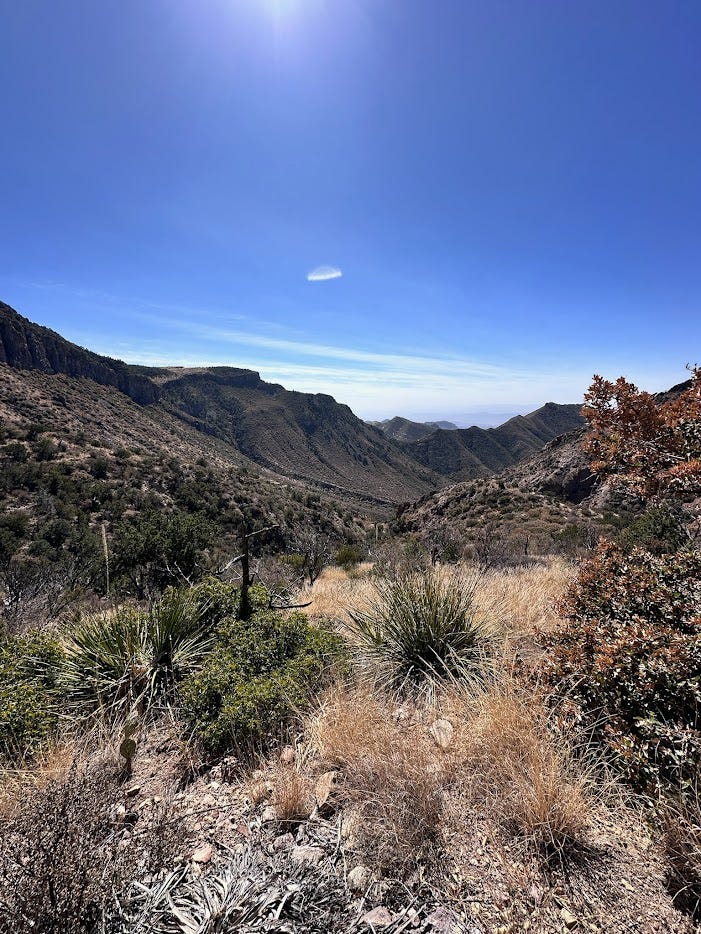
Big Bend’s US Customs and Border Protection office is open daily from 9 AM to 4 PM. If you miss that window, you’re spending the night in Mexico. Boquillas is inaccessible by car, so the only way to get into the village is to park at the Border Station, ferry across the Rio Grande, and hike.
We met a Border Patrol officer at the parking lot entrance. She stood there, preventing vehicles from entering the lot.
“Oh no!” I said, worried they closed the border for the day.
We rolled down our window, and she told us the lot was full.
“Go for a hike and come back in an hour, " she told us. “Spots will open up soon, and we can get you across.”
The parking lot was packed like a Sunday at Disneyland. Business was booming in Boquillas.
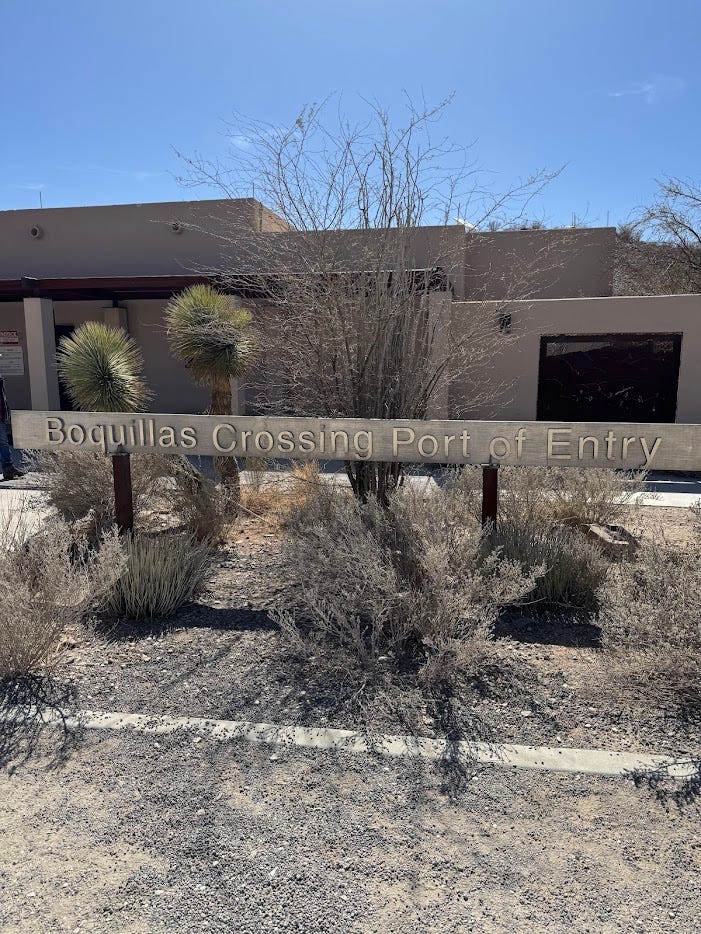
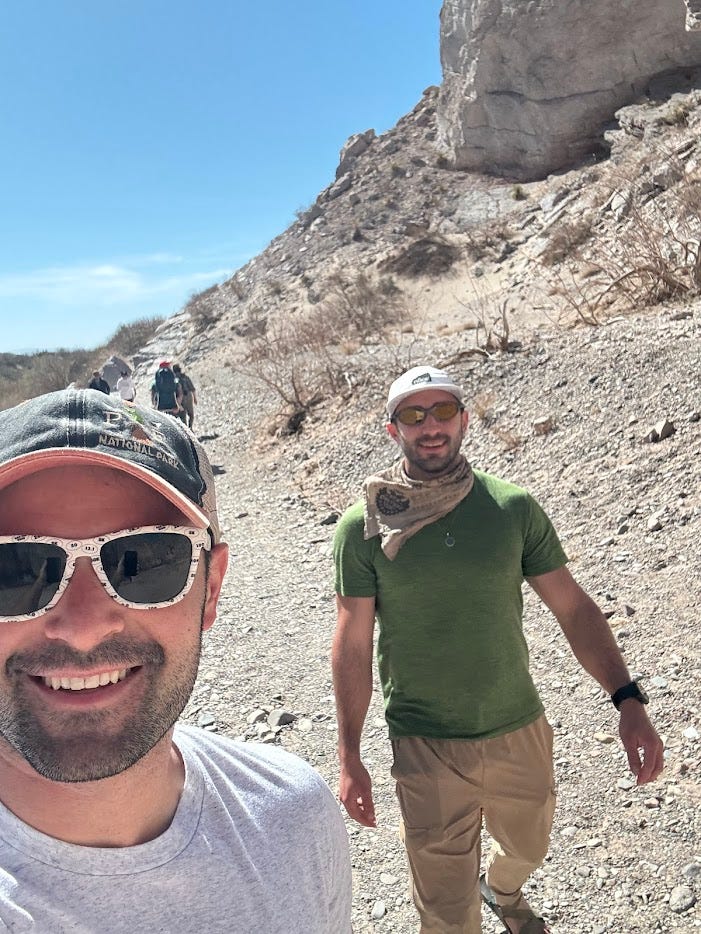
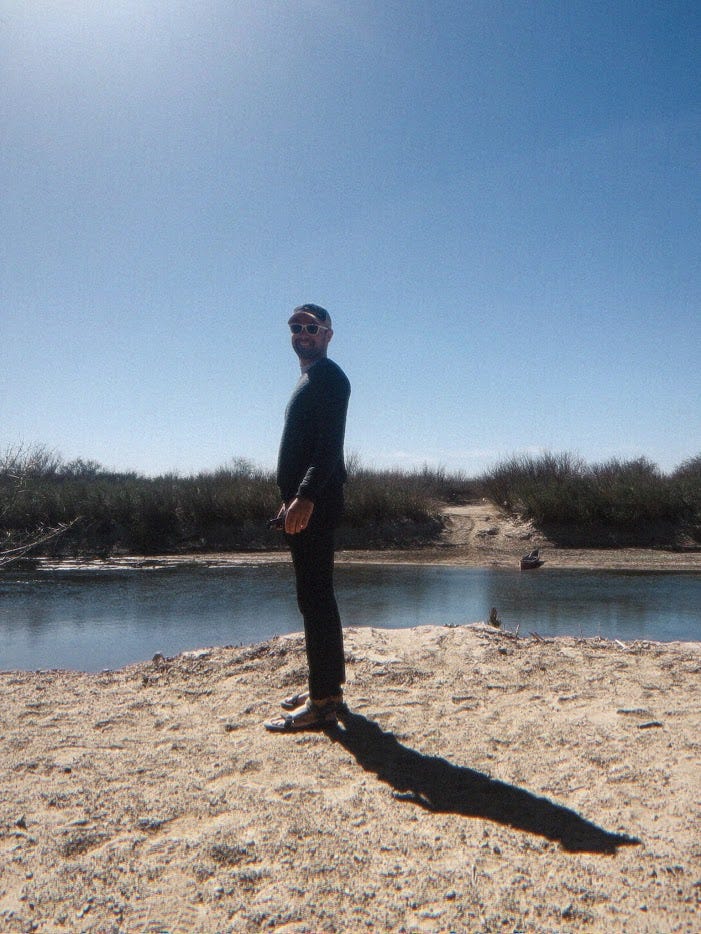
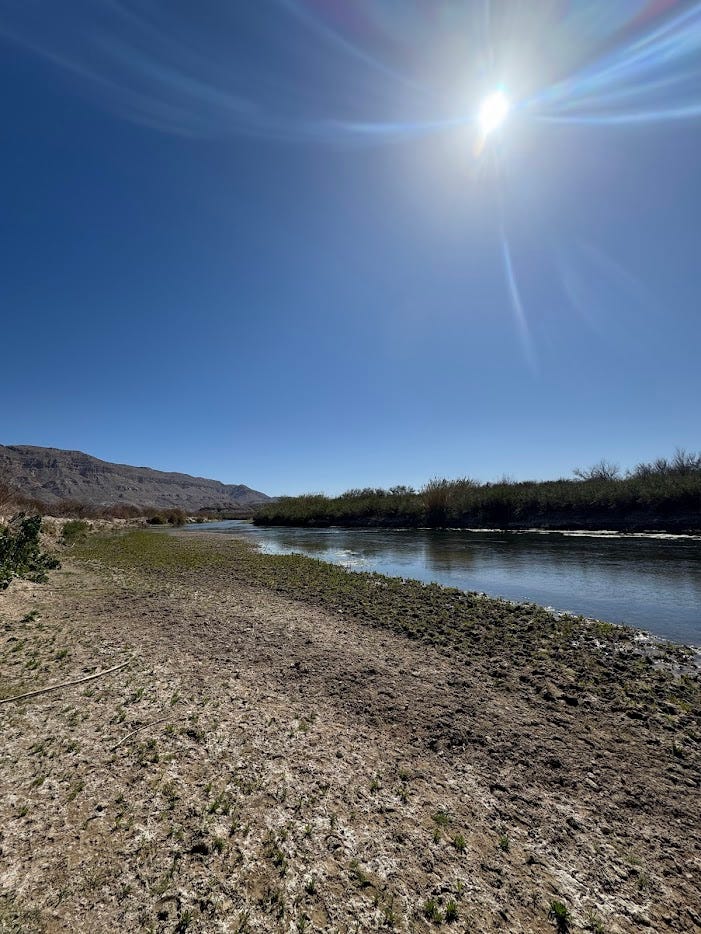
The Fight to Keep Boquillas Alive
Not long ago, fewer than 40 people a day crossed into Boquillas. The record is 427 — more than the population of the town. There’s always been a symbiotic relationship between Big Bend and Boquillas. Everything about West Texas culture derives from Mexican roots, and 25 years ago, there was no “official” way to tell the difference between where Big Bend ended and Boquillas began. No border office existed yet. Hikers would simply ferry across the Rio, grab a burrito from town, and be on their way.
Everything changed after 9/11 when the US shut off casual border crossings. If you wanted to visit Boquillas, you’d have to cross at an entry point 240 miles away and traverse the Boquillas Canyon through winding dirt roads.
In other words, you weren’t getting to Boquillas.
The village, which relied on hikers to support their two restaurants, one dive bar, and several shops, suffered. The families moved away, and a ghost town remained. Another relic to add to the list of old abandoned towns in West Texas.
In 2009, the Obama administration began and things got a little better.
President Obama worked with President Felipe Calderon to improve conservation efforts along the Rio Grande, including a proposal to open a border office within Big Bend National Park. A US Customs office opened in 2013, and Boquillas was back in business.
We Literally Ran To Mexico
After our hike through Boquillas Canyon, we headed back and found a parking spot. The customs office was small, maybe the size of a laundromat. Two women staffed the office. One agent noticed the size of our group and took us aside to go over ground rules.
“Border closes at 4 pm. I want you back here at 3:30.”
“Check in with Mexican immigration when you get into town.”
“Finally, do not, do not, do not, lose your passports.”
She looked at us like a middle school teacher staring down a restless classroom. We nodded, and the agent showed us the door.
It’s a short walk through some desert bush to the Rio Grande. In Conor Knighton’s book, he’s surprised to see a shallow, narrow stream instead of a mighty “Grande” river.
“Not what you were expecting?” A park ranger asked him.
We found the “Boquillas International Ferry Service” escorting a family across the river. The ferry service includes placing you and your party in a raft while a guy smoking a cigarette drags you across the river. We rolled up our pants and waded across into Mexico.
We still had about a half-mile hike to town. If you’re in a rush, the locals have a solution to this problem with a 5-dollar donkey service.
A donkey ride sounded fun, but this is a runner’s newsletter. We started running up the trail so that we could claim that we literally ran into Mexico.

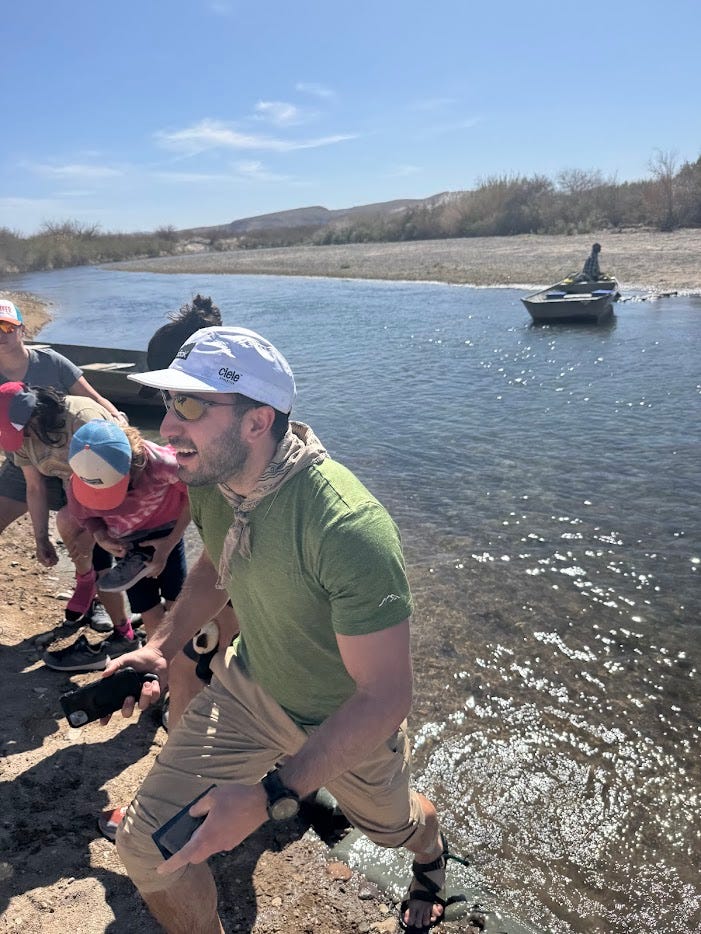
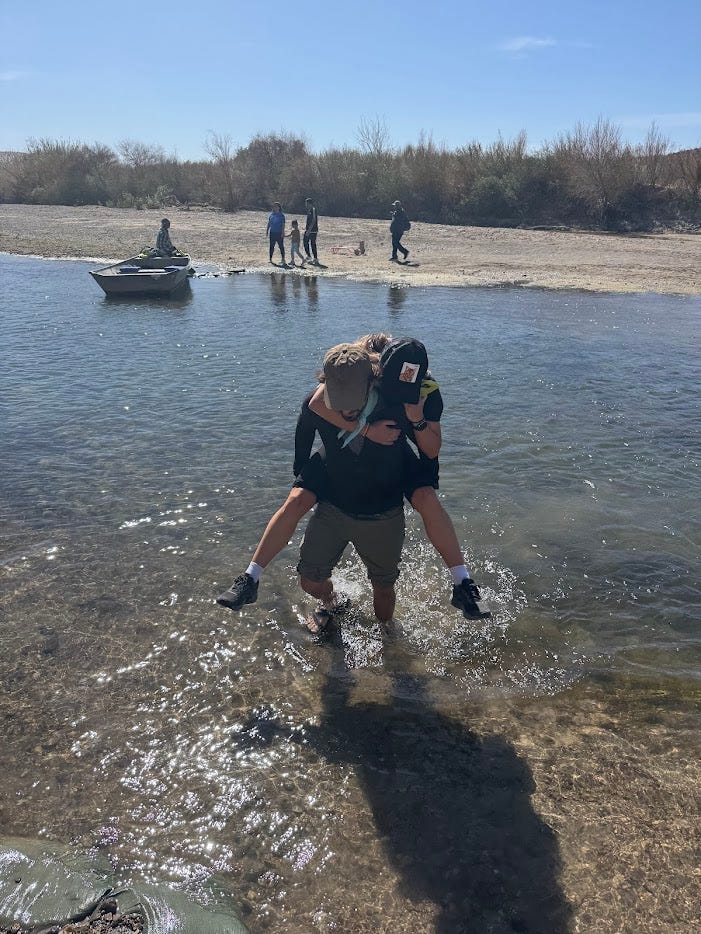
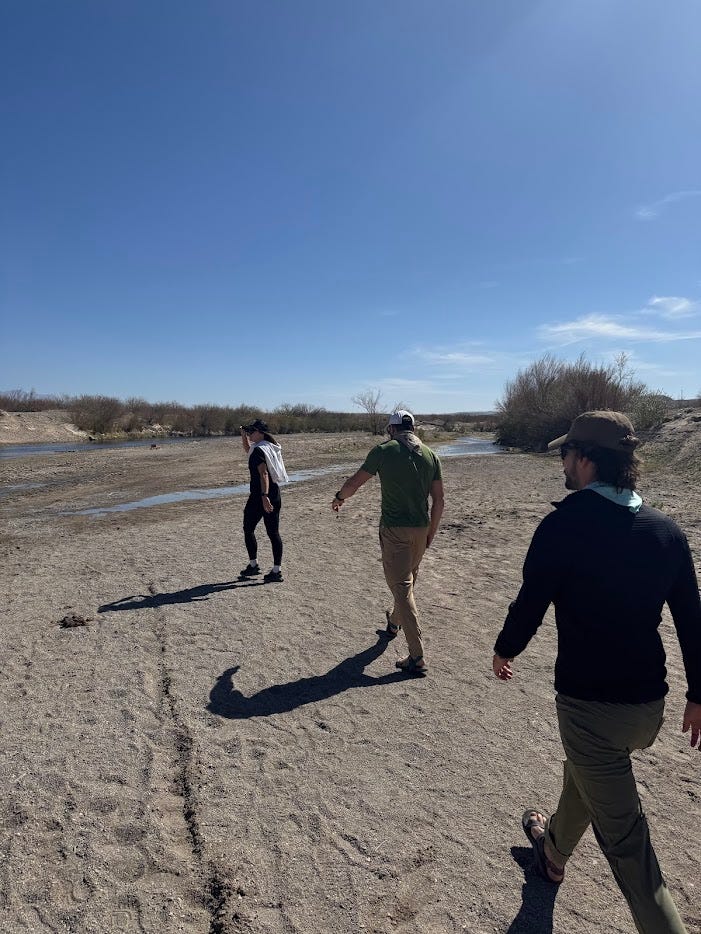
Where to Find The Best Burrito in Big Bend
My friends and I were on a mission.
We only had about an hour and a half to explore and eat a burrito at Jose Falcon.
I read about Jose Falcon years ago, so seeing the restaurant in person was surreal.
During the free-flowing border years of the 1990s, a man named Jose Falcon owned the restaurant. Boquillas had no electricity or refrigeration then, so the menu consisted of non-perishable items like bean burritos. Jose died, and his daughter Lilia took over the business. After 9/11, Lilia moved her family to Kansas City to work in a meat processing plant and then to Atlanta to work in construction. When the Obama Administration opened a border crossing, Lilia and other families moved back to Boquillas.*
My friend Alejandro and I met Lilia at the restaurant (though we didn't know who she was at the time).
She was working at the restaurant's checkout counter. A restaurant which now has electricity, refrigeration, and a full menu stocked with Al Pastor burritos, goat tacos, and cold, salty margaritas.
We splurged on tacos and margaritas but ended up short on cash. That was a rookie mistake. She accepts USD, so there's no reason not to bring enough money.
We explained our predicament to Lilia. "Not to worry," she said. “The Wi-Fi password is outside. You can Venmo the rest.”
That’s how we learned that Jose Falcon now offers electricity, refrigeration, and wifi.
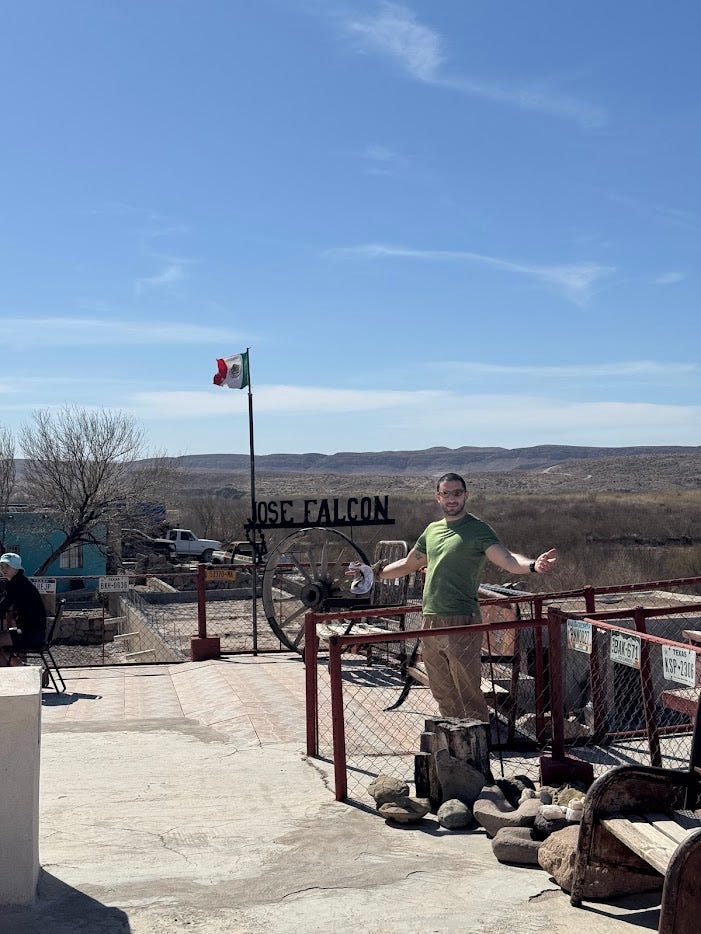
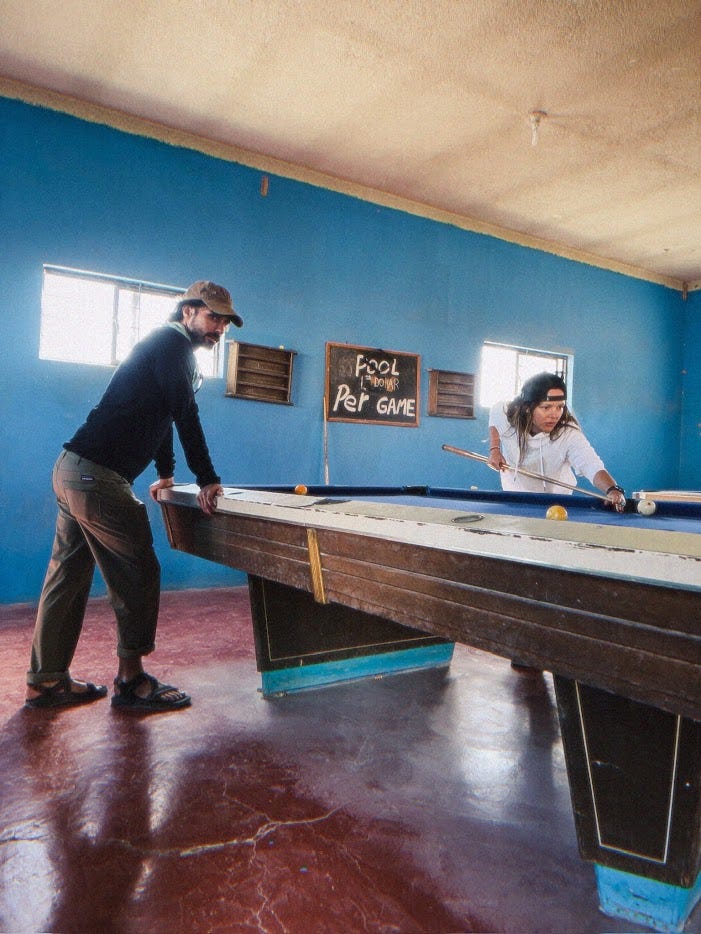
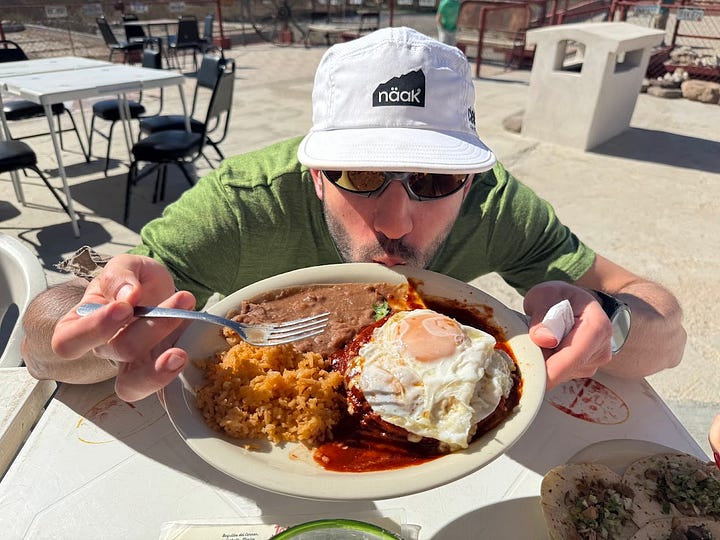
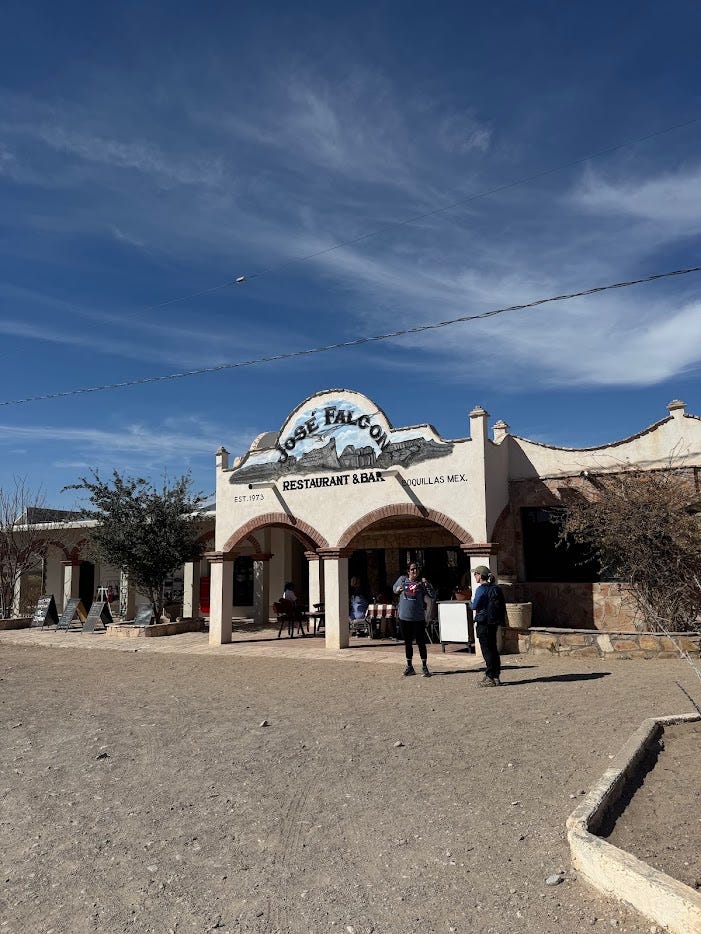
The Richest Life is Found Right Where You Stand
My friend Alejandro was born in Mexico. During lunch, I asked him about the land and its political landscape.
He told me he's a fan of the newly elected Mexican president, Claudia Sheinbaum. She's handled Trump's bully ball as well as anyone in the world. Some pundits admit that she may have gotten the better of Trump. When Trump initially threatened Mexico with tariffs, she sent 10,000 troops to the border to crack down on drug trafficking and illegal immigration.*
Trump delayed the tariffs in response. Here's the twist: the policy had already been enacted during the Biden Administration three years ago.
Nothing changed, but the tariffs got delayed, and Trump got to save face.
Sometimes, the best power move is letting someone else think they won.
“Mexico deserves a good president,” I told Alejando.
After lunch, I wandered into the dive bar for a beer. The bartender looked out his window at Texas, just across the Rio Grande.
"Have you ever been to the United States?" I asked him.
"No, no," he said. "I've always been here. Why would I go to the US?"
His small village of Boquillas was 160 miles from the nearest city. Yet he seemed content, happy in his corner of the world.
It made me question everything I thought about escaping to find happiness.
Sometimes the richest life is built right where you stand.
I checked my phone and nearly had a panic attack. It was 3:30. The border was closing in 30 minutes. I chugged my beer and met up with my friends who were anxiously waiting at the edge of town. We started our hike back to the border office.
As we passed the donkey transports, I felt guilty about running to Boquillas. I should have just paid the ferryman and gotten on a dang donkey—why do I have to run everywhere?
I spent as much money as I could. I bought two ponchos, one for me and one for my girlfriend Dani, a baseball that read “Boquillas International Ferry,” and over $100 worth of tacos, margaritas, and tequila shots at Jose Falcon.
I wish I could’ve spent more. This place was special, and I wanted to support it.
I Didn’t Find Self Actualization in Boquillas
While hiking back on the dusty trail, a wave of emotion hit me in the face like a west Texas wind.
I realized that Boquillas was not the oasis I dreamed it would be.
I didn’t have a moment of profound introspection, I didn’t find self-actualization, and I never thought about that girl who broke my heart.
Travel will not make you whole again.
Influencers and movies sell us this idea - Eat, Pray, Love your way out of depression. The truth is your woes, your debts, and your heartache follow you.
"Wherever you go, there you are," Yogi Berra said.
I learned this in Boquillas. I went there thinking I'd find healing after a breakup. Instead, I found something better:
I found Lilia and families fighting to keep their town alive. Border agents protecting the land's wild beauty. Friends sharing an unforgettable moment.
Sometimes the best discoveries aren't about us at all.
*Information about Lilia and Jose Falcon's history comes from Conor Knighton’s book Leave Only Footprints
.





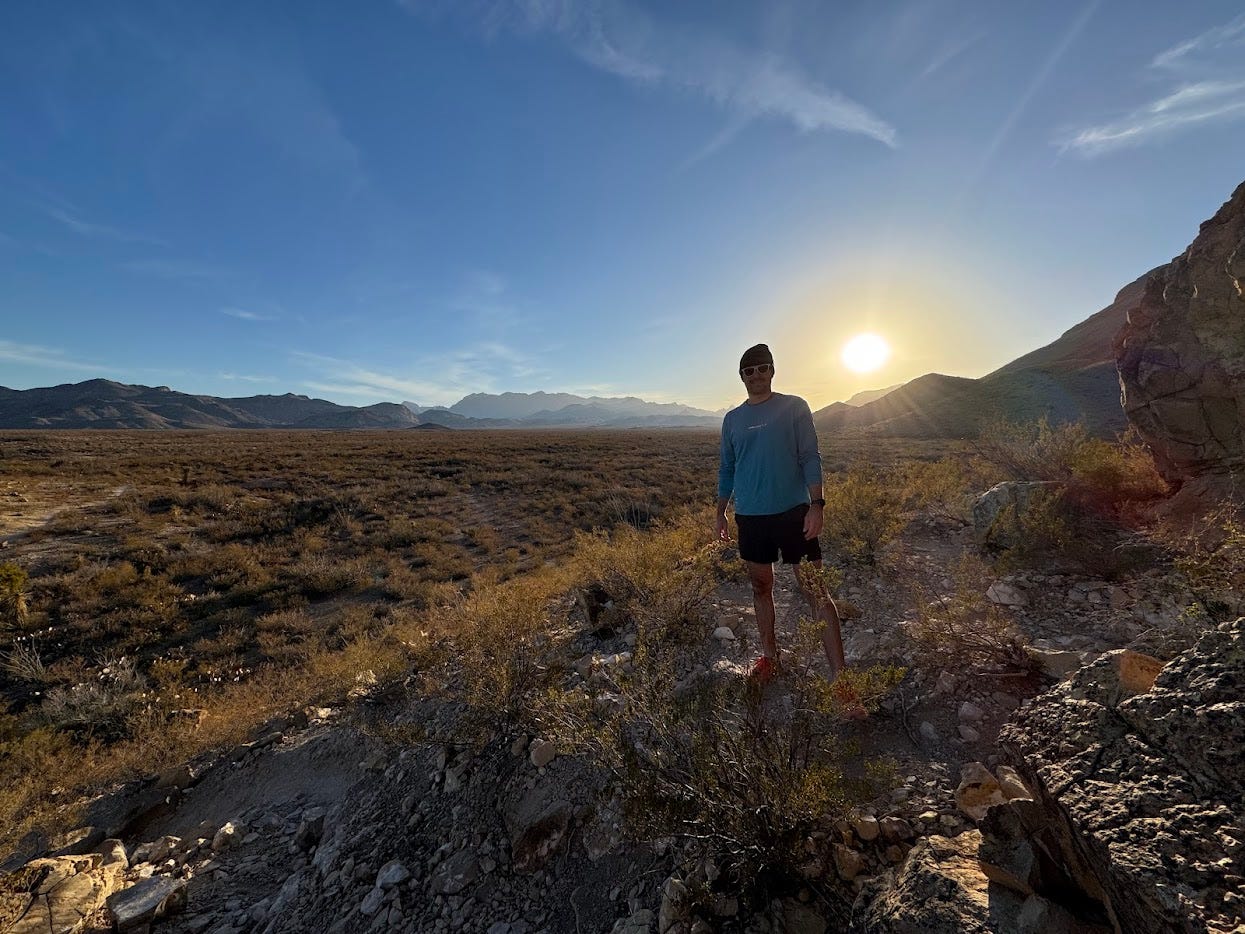
Great article Cal, I really enjoy your journey.